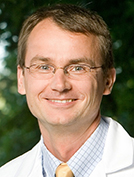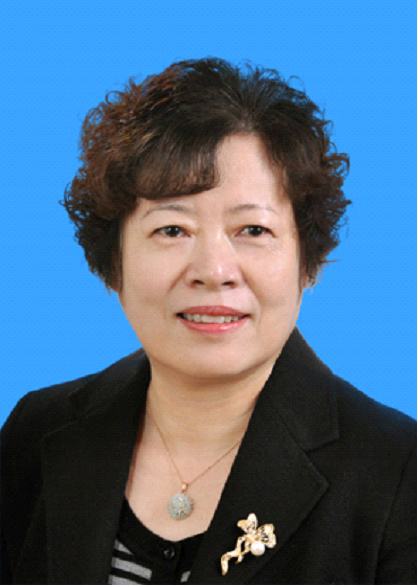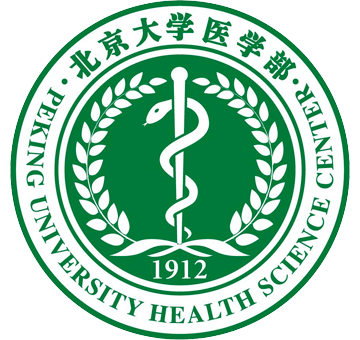The Joint Institute has five established Research Programs: Cardiovascular, Gastroenterology & Liver, Pulmonary, Renal, and Cancer/ Precision Medicine. These program areas were chosen because of their overall importance to global health, as well as the opportunity for effective collaboration and the potential for translational impact. Each year, the Joint Institute provides funding for high-impact projects across these areas in addition to other exploratory disciplines such as emergency medicine, orthopedics, surgery and psychiatry.
Cardiovascular Disease Program
Cardiovascular disease takes the lives of more than 16.7 million people (29.2 % of total global deaths) each year and at least 20 million others suffer heart attacks or strokes according to World Health Report 2003. While significant strides have been made in the prevention and treatment of cardiovascular disease, there is still much the scientific community does not understand how it develops. The partnership between Michigan Medicine and PKUHSC offers a unique opportunity for leading researchers to study the disease in a large, genetically diverse patient population. Thus the Joint Institute has initiated several important studies designed to significantly advance understanding about the genetic basis of cardiovascular disease. In particular, the JI's work in this area studies the role genetics play in the development of risk factors, such as high blood pressure, as well as in the onset of cardiovascular diseases, including myocardial infarction, abdominal aortic aneurysm, and coronary artery disease. In addition, scientists are systemically studying the genetics and biology related to high-density lipoprotein (HDL), or "good" cholesterol to identify new strategies for effectively raising HDL in patients.
Cardiovascular Program Leads - Michigan Medicine
Eugene Chen, MD, PhD
David Pinsky, MD
Cardiovascular Program Leads - PKUHSC
Wei Gao, MD, PhD
Jianping Li, MD, PhD
GI & Liver Disease Program
While much progress has been made in the treatment and prevention of liver diseases, viral hepatitis (B or C), fatty liver disease, and liver cancer continue to pose a significant health threat worldwide, and are of special concern in Asia - the world's most populous continent. The unique partnership established by the Joint Institute provides scientists at Michigan Medicine and PKUHSC an unprecedented opportunity to study liver disease in large, genetically diverse patient populations, and undertake rigorous, translational research that significantly improves patient care.
GI& Liver Program Leads - Michigan Medicine
Chung Owyang, MD
Anna Suk-Fong Lok, MD
Pulmonary Disease Program
According to joint research published by the World Health Organization and the World Bank, chronic obstructive pulmonary disease (COPD) is projected to rank firth in global burden of disease by the year of 2020. Despite significant progress in the study and treatment of COPD - as well as public health initiatives to reduce tobacco consumption - COPD, and its related complications, continue to pose serious and significant health threats to people worldwide, involving both industrialized and developing nations. In addition, once discounted as unimportant, new scientific evidence suggests that the composition of the microbiome, both respiratory and gastrointestinal, has profound effects on multiple aspects of human health including immune and inflammatory responses. The research partnership between Michigan Medicine and PKUHSC offers a unique opportunity to study the respiratory microbiome in large and genetically diverse patient populations. Aided by recent technological advances in microbial genomic sequencing, the Joint Institute's Pulmonary Disease Program is initiating several studies in this new and exciting field.
Pulmonary Program Lead - Michigan Medicine
Theodore Standiford, MD
Pulmonary Program Lead - PKUHSC
Bei He, MD, HCCP
Renal Disease Program
Michigan Medicine and PKUHSC's renal divisions play a leading role in translational chronic kidney disease (CKD) research in the U.S. and China. We are committed to solving the most urgent unmet needs in this field, including the early and accurate identification of patients at high risk of progressing to end-stage renal diseases (ESRD), the need for eary and targeted treatments for these high risk patients. The joint scientific expertise, unique resources (i.e., biobanks established by both divisions hosting urine and plasma samples accrued over years from patients in both countries that are linked with longitudinal clinical data), and the deep trust-based collaboration and exchanges of scholarly activities. Together, we strive to: (1) better understand the CKD prevalence, risk factors, and outcomes between China and the U.S.; (2) develop non-invasive molecular markers for early detection of patients at high risk for progression to allow preventative management of CKD; and (3) identify molecular mechanisms driving glomerular disease progression as targets for interventional trials. The JI's Renal Disease Program provides a valuable platform to exchange research ideas and to nurture new collaborations on renal disease. We continue to welcome new projects and new investigators to the program. We strongly believe that our joint effort will contribute to improve patient care and reduce financial burden in both the U.S. and China.
Renal Program Leads - Michigan Medicine
Matthias Kretzler, MD
Wenjun Ju, PhD
Renal Program Leads - PKUHSC
Minghui Zhao, MD, PhD
Hong Zhang, MD, PhD
Cancer and Precision Health Program
In 2017, Joint Institute leaders designated a new area of focus for future project investment: Cancer and Precision Health.
Cancer Program Leads - Michigan Medicine
Weiping Zou, MD, PhD
Shaomeng Wang, PhD
Cancer Program Leads - PKUHSC
Ning Zhang, MD
Kaifeng Pan, MD, PhD
Exploratory Program
In addition to the established research programs (i.e., Cardiovascular, Pulmonary, GI/Liver, Renal, Cancer & Precision Health), the Joint Institute is increasingly invested in collaborations spanning other areas of practice. While the exploratory program is young, the number of projects is expanding rapidly, in various disciplines including Emergency Medicine, Radiology, Psychiatry, Obstetrics and Gynecology, Human Genetics, and more.


















